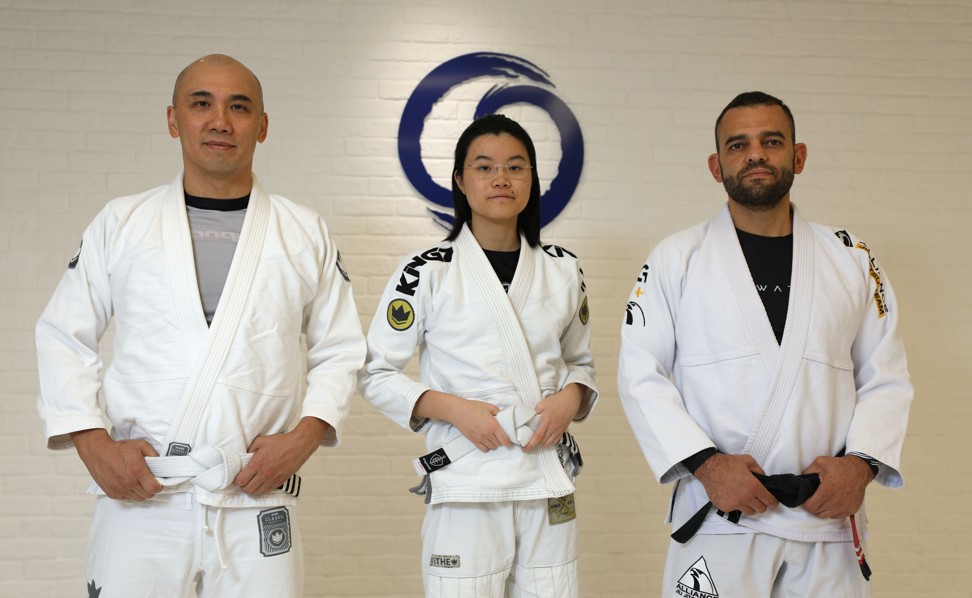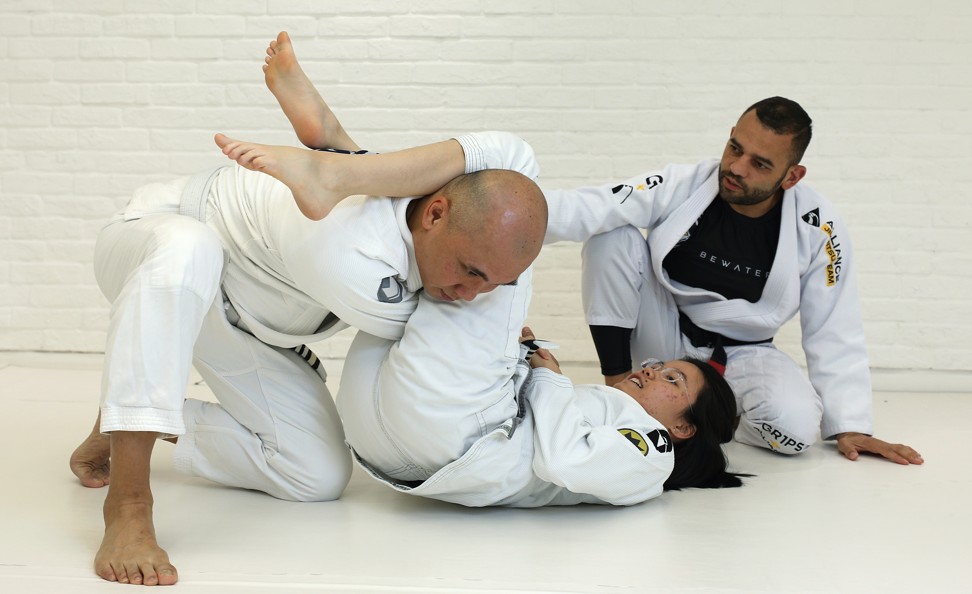
Poor diet, lack of exercise in childhood a ticking time bomb – how to live longer, healthy lives
- Children who are overweight, obese or living unhealthy lifestyles have an elevated risk of suffering heart attack or a stroke as adults, big new study finds
- Childhood is the time to instil good eating and exercise habits in your children, and setting a positive example for them to follow will help

Hannah Tsang has been practising Brazilian jiu-jitsu for the last two years. Her father, Stephen Tsang, says that during this time, his 17-year-old daughter has become stronger and healthier.
“I’ve definitely noticed an improvement in her cardiovascular fitness,” he says. “I try to train with her, too – we enjoy keeping fit together.”
Tsang understands the importance of instilling healthy lifestyle habits in his daughter from a young age. He and his wife have educated Hannah about what constitutes a wholesome diet, keep only nutritious foods and non-sugary drinks in the house, and prepare home-cooked meals as often as possible. Tsang adds that Hannah is also aware of the dangers of smoking and is not likely to pick it up.
More than ever, it is important for parents to guide their children to live healthily: childhood obesity is a growing problem all over the world and, along with it, the risk of developing serious health problems, from stroke and cancer to heart disease and diabetes. The World Health Organisation calls it one of the most serious public health challenges of the 21st century.

A major study highlighted the importance of establishing the foundations for heart health early in life. It found that children who are overweight or obese, who have high blood pressure or high cholesterol, or who smoke, are at a higher risk of experiencing a heart attack or stroke when they are older.
The researchers uncovered a strong association between major cardiovascular risk factors in children – cholesterol, blood pressure, body mass index (BMI) and smoking – and cardiovascular disease in adults.

Additionally, the study, which had more than 16,000 participants, found that “a meaningful proportion of that risk appears to be laid down in childhood and has a detrimental effect independent of adult risk factor levels”, according to lead author Dr Terence Dwyer, professor of epidemiology at Oxford University.
Dwyer and his team found that a 10 per cent rise in BMI was associated with a 20 per cent higher risk of a cardiovascular event leading to hospital admission; a 10 per cent rise in systolic blood pressure was associated with a 40 per cent higher risk of such an event; a 10 per cent rise in cholesterol was associated with a 16 per cent higher risk of an event; and adolescent smoking was associated with a 77 per cent higher risk of an event.
“Obesity is a big problem in Hong Kong, and many of our kids are indeed at a high risk of developing cardiovascular problems down the road,” says Dr Linda Ho Mo-ching, a specialist in paediatrics at Matilda International Hospital.
“While the Centre for Health Protection found that obesity rates in primary-school children decreased slightly from 2008 to 2018, it found that they increased in secondary school students over the same period. Among the young patients I see, I’d say that 20 per cent of them are overweight and have a high BMI. Many of them are of late primary-school age.”
Ho believes that the modern lifestyle has a lot to do with rising childhood obesity rates. “Kids have so many food choices these days – most are convenience or fast foods, which are tasty but often high in sugar, sodium and fat,” she says. “Children in Hong Kong don’t have much physical activity, either. Their days are sedentary because they are more focused on their studies, and if they have free time they prefer to spend it indoors on their digital devices or watching television.”
Besides cardiovascular problems such as heart attack and stroke, Ho warns that a high BMI and unhealthy lifestyle habits such as a poor diet, a lack of exercise and smoking can increase a child’s risk of developing other diseases like cancer and diabetes.
“This is why it’s so important for parents to teach their kids how to live healthily. Childhood is a good time to do this because your kids are still under your control and are more likely to listen to you. Their first three years are especially crucial because this is when they start to form and learn habits.”

It’s not enough to just teach your little ones; you must also set a good example. “This means adopting healthy lifestyle habits and shunning unhealthy ones yourself,” says Ho. “Children learn from their parents, so be positive role models for them by not smoking, eating a wholesome, well-balanced diet, maintaining an acceptable weight or BMI and exercising regularly.”
Tsang says: “It’s true that children don’t just listen to what their parents say; they also look at what they do. “My wife and I try to set a good example for our family by eating healthily, exercising regularly and maintaining a work-life balance.”
An easy way to get kids to be more physically active is to make workouts exciting and engaging. Brazilian jiu-jitsu, for instance, is an excellent aerobic and anaerobic activity, but young participants also find it fun. Fernando Junior, founder of the martial arts studio Be Water Hong Kong, where Hannah trains, has been practising and teaching Brazilian jiu-jitsu for many years.
The physical nature of the sport requires participants to develop cardiovascular fitness, and the boys and girls who train with him find it exciting because it challenges them physically and mentally, he says. He has seen many children go from overweight to fit and trim.
“Kids love competition and they relish a challenge, so pick a physical activity or sport and turn it into a game,” Ho advises.
Healthy eating can also be fun. Ho suggests getting your kids involved in grocery shopping, food preparation and cooking. “At the supermarket, for instance, teach them how to read labels and ask them to spot the differences between processed and unprocessed foods.
“In the kitchen, encourage them to come up with heart-healthy recipes and let them experiment with various ingredients and garnishes. The more enjoyable something is, the more interested and engaged your kids will be and the more they will want to do it.”